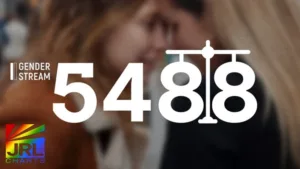By: Paul Goldberg, Senior Editor | JRL CHARTS – LGBT Politics Europe
ROME — (July 19, 2025) — Social media is ablaze with posts alleging that Italy has just passed a harsh new anti-LGBT surrogacy law. With siren emojis, “breaking” banners, and millions of shares, these viral claims are generating outrage—and misinformation.
Related Coverage Links on JRL CHARTS:
-
Get the Latest in LGBT Politics Europe – Hate Crimes, Unlawful Arrests & More
-
Apple Fined $93K in Russia Over LGBTQ+ Content on Streaming Platform
But JRL CHARTS can confirm: the law in question is not new. Here’s what really happened, who it affects, and why the LGBTQ community remains alarmed.
The Viral Rumor: “Italy Just Banned LGBT Surrogacy!”
Posts exploding across Facebook, TikTok, and X claim Italy has introduced a new law targeting same-sex couples, banning them from having children via surrogacy. Most of these lack citations, sources, or government links—but do include stock photos of Prime Minister Giorgia Meloni with red “banned” signs over pride flags.
While the outrage is real, the timing isn’t: the legislation passed back in October 2023, not this month.
The Actual Law: Criminalizing Surrogacy Abroad
Italy has banned surrogacy on its own soil since 2004, but the October 2023 legislation extended that ban to Italians who pursue surrogacy abroad—including in countries like the U.S. and Canada where it’s legal.
The punishment?
-
Up to two years in prison
-
Fines up to €1 million
While technically applying to all Italians regardless of orientation, critics say the law disproportionately targets LGBT people, especially male couples who have fewer family-building options under Italian law.
Legal Loopholes—and Limitations—for LGBT Couples
Italy still doesn’t allow same-sex marriage, which restricts LGBT couples from adopting under current Italian law. Although civil partnerships are legal, they don’t grant the same rights.
That said, there was a small victory in May 2025 when Italy’s Constitutional Court ruled that two women could both be listed as parents on a child’s birth certificate.
Quote from the ruling:
“It is unconstitutional to deprive children born through medically assisted reproduction of legal recognition by both mothers.”
Still, this does not change surrogacy laws and doesn’t extend to gay male couples, leaving a significant legal gap.
How Italy Compares to the Rest of Europe
Italy is now one of only a few EU countries that criminalize cross-border surrogacy. Others like France, Germany, and Spain ban the practice domestically, but don’t prosecute citizens for going abroad.
In contrast, countries like Portugal, Greece, and Belgium offer regulated access to surrogacy—sometimes even for same-sex couples.
The Bottom Line: The Law Isn’t New—But the Impact Is Real
While the “breaking news” framing is misleading, the reality remains harsh: Italy’s LGBT citizens are legally blocked from many family-forming avenues, especially gay men. And with steep penalties for those who try abroad, the law has chilling effects on family planning.
For more global LGBT political updates and legal deep-dives, stay with JRL CHARTS — your trusted voice in LGBTQ+ world affairs.
Media Partners: For licensing inquiries, media usage rights, or republication requests, please visit our Contact Us page. All content © JRL CHARTS Media Network. Unauthorized use is strictly prohibited.
- LGBTQ Corporate Participation Plunges 65% in 2026 as DEI Retreat Reshapes Business Landscape - February 22, 2026
- Forbidden Fruits (2026) Ignites Buzz With Sapphic Undertones and Witchy Mall Cult Drama - February 21, 2026
- Trump Targets Netflix Board Member Susan Rice After ‘Take a Knee’ Remarks Spark Political Firestorm - February 21, 2026
// Affiliate Disclosure: JRL CHARTS is a digital news and media platform. We do not host, stream, or sell adult content. Some outbound links may contain affiliate tracking to licensed studio-owned platforms (e.g., LatinBoyz, AEBN, BiLatin Men). These links lead to legal, age-gated distributors and are provided strictly for editorial and informational purposes only.







